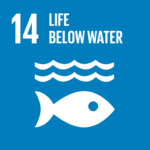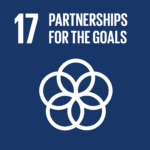For over 70 years, Regional Fisheries Management Organizations (RFMOs) have been entrusted with sustainably managing fishing in international waters. Yet, according to Greenpeace, these bodies have consistently ignored scientific advice, allowing 35.4% of assessed fish stocks to become severely overfished.
In a scathing indictment of international fisheries management, a new Greenpeace report reveals a decades-long failure to curb global overfishing, leaving more than a third of assessed fish stocks severely depleted. The report, “Un-tangled: How the Global Ocean Treaty Can Help Repair High Seas Mismanagement,” paints a grim picture of an ocean governance system that prioritizes extraction over conservation.
RELEVANT SUSTAINABLE GOALS



70 Years of Mismanagement
For over 70 years, Regional Fisheries Management Organizations (RFMOs) have been entrusted with sustainably managing fishing in international waters. Yet, according to Greenpeace, these bodies have consistently ignored scientific advice, allowing 35.4% of assessed fish stocks to become severely overfished.
The environmental group argues that the structure of RFMOs, composed of member countries that directly benefit from the fisheries, has led to a conflict of interest that has exacerbated the ocean crisis. Instead of adopting precautionary approaches to protect sensitive species and vulnerable marine ecosystems, these organizations have overseen their decimation.
Greenpeace is now calling for urgent action to address this systemic failure. The organization is pushing for the swift ratification of the Global Ocean Treaty, which was adopted in June 2023. This treaty, they argue, could provide the legal framework needed to repair the damage done by decades of mismanagement and help achieve the goal of protecting 30% of the oceans by 2030.
How the Global Ocean Treaty can help repair high seas mismanagement
As of the report’s publication, 90 countries have signed the Global Ocean Treaty, with six having ratified it. However, for the treaty to enter into force and become legally binding, at least 60 nations must ratify it. Greenpeace is urging all governments to expedite this process and begin developing proposals for the first high seas ocean sanctuaries.
The findings of this report are expected to be a key topic of discussion at the “Immersed In Change” international ocean conference scheduled for June 2025. In the interim, Greenpeace emphasizes the need for stronger environmental regulations and increased support for local marine conservation efforts.
This damning assessment of RFMOs’ performance over the past seven decades underscores the urgent need for a paradigm shift in ocean governance. As the world grapples with interconnected crises of biodiversity loss and climate change, the health of our oceans has never been more critical. The Global Ocean Treaty represents a potential turning point, but its success will depend on swift action from the international community.
As we approach the 2025 conference, all eyes will be on world leaders to see if they can muster the political will to reverse decades of mismanagement and chart a new course for the future of our oceans.
Lead image courtesy of Lisa Galimzianova from Getty Images
You may also be interested in :
New Study Predicts Near-Permanent Heatwave State For Indian Ocean



